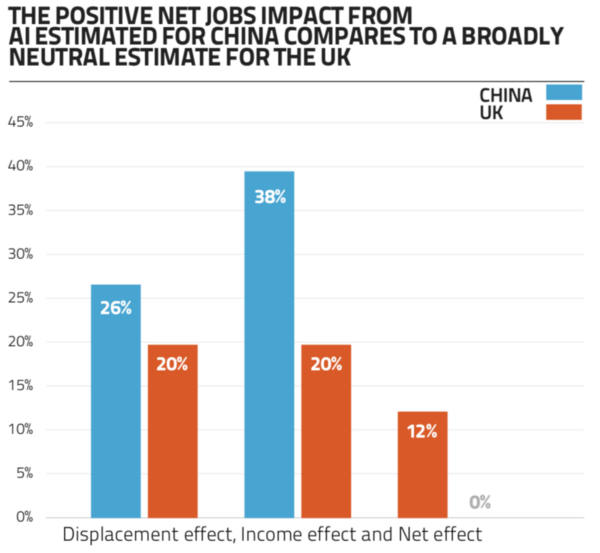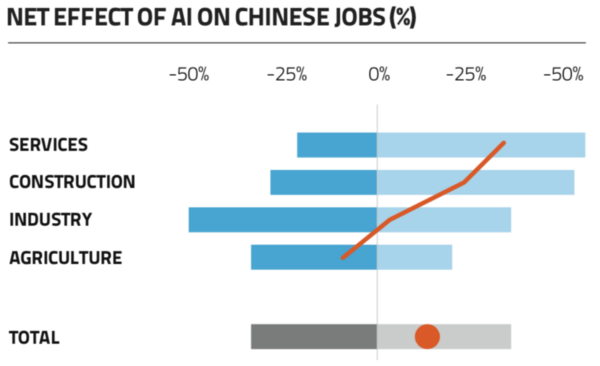Artificial intelligence is expected to give a bigger economic boost to China than to other deve- loped nations over the next two de- cades, disrupting the Chinese job market but providing a net increase in employment, according to a new report from PwC.
“The potential impact of AI on GDP in China is greater than in the U.S. or Western Europe and that also translates into stronger job creation potential in China,” John Hawksworth, chief economist, for PwC said in an interview with The Innovator.

A PwC report last year estimated that AI could provide a 26% boost to Chinese economic growth by 2030. The new report, scheduled for release September 18 on the opening day of the World Economic Forum’s Annual Meeting of the New Champions in Tianjin, makes a more conservative assumption: a 20% GDP boost for China, well above an estimated 15% of GDP for the U.S. and 10% for Western Europe.
The latest PwC report estimates that China could see a positive net impact on employment from AI and related technologies such as robots, drones and driverless vehicles even though there will be significant disruption to the jobs market with hundreds of millions of workers likely to have to shift careers over the coming two decades.
In a recent analysis for the UK, published in its UK Economic Outlook report in July, PwC found a broadly neutral long-term net impact on jobs from AI and related technologies. Based on previous research, the UK jobs impact estimate is likely to be broadly in line with the average impact across Western European countries, says Hawksworth.

Compared to most industrialized economies, China still has considerable scope to expand automation in manufacturing and agriculture. That will lead to job displacement in those sectors. But the job losses will be more than offset by AI-related job creation, the report says, as the Chinese government invests heavily in developing AI and related technologies, as well as the science, technology, engineering and math (STEM) skills needed to make the most of those innovations.
“We estimate that AI and related technologies could displace around 26% of existing jobs in China over the next 20 years, but could create an additional 38% by boosting productivity, real incomes and so spending levels, meaning that AI could increase the number of jobs in China by around 12% over the next 20 years,” the report says. The services sector will see the biggest growth in employment because jobs in this sector can’t easily be replaced by AI. Some jobs such as financial traders and clerical staff will be automated, but areas like health care involve high levels of interpersonal skills that AI systems lack. The report projects that the services sector in China will grow at a relatively high average rate over the next 20 years, accounting for an ever higher share of total GDP and employment.





